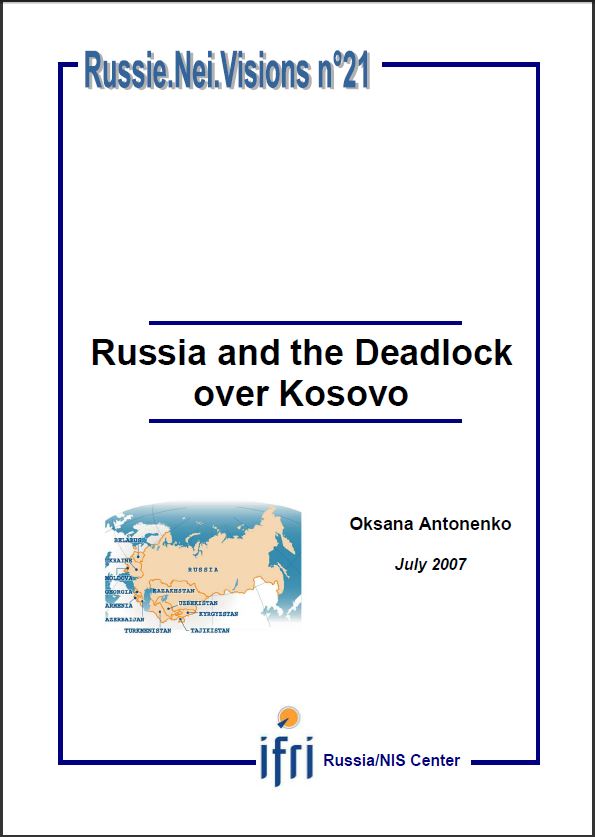Russia and the Deadlock over Kosovo

Russia and the West disagree over the future of Kosovo. While the European Union (EU) and United States (US) are keen to grant Kosovo de jure sovereignty under the Ahtisaari plan, Russia insists that no decision can be taken without Serbia's consent. Moreover, Russia insists that the Kosovo issue will set a precedent with long-term consequences for Eurasia and the world. These differences have exposed old divisions between Russia and the West, particularly acute during NATO's bombing of Yugoslavia in 1999. However, today it is more difficult for the West to reach a compromise with an increasingly assertive and self-confident Russia which does not hesitate to oppose Western policies. This article looks at historic legacies, myths, concerns about precedents and other interests which guide Russia's policy over Kosovo's status.
Download the full analysis
This page contains only a summary of our work. If you would like to have access to all the information from our research on the subject, you can download the full version in PDF format.
Russia and the Deadlock over Kosovo
Related centers and programs
Discover our other research centers and programsFind out more
Discover all our analysesRussia, the Palestinians and Gaza: Adjustments after October 7th
The Soviet Union (USSR), and subsequently the Russian Federation as its internationally recognized legal successor, has consistently sought to play a visible role in efforts to resolve the Israeli-Palestinian conflict.
Deathonomics: The Social, Political, and Economic Costs of War in Russia
The report attempts to outline and examine a truly new phenomenon in Russian society, dubbed “deathonomics”—the making of a mercenary army against the backdrop of the Kremlin’s war in Ukraine, eventually replacing both the Soviet (conscript) and early new Russian (contract) armies. It notes that, by the end of 2023, this trend had turned the military service into one of the highest-paying professions in the country, something not seen in Russia on such a scale since the late 17th century.
Russia's Asia Strategy: Bolstering the Eagle's Eastern Wing
Among Russia’s strategic priorities, Asia traditionally played a secondary role compared to the West. In the mid-1990s, then Foreign Minister Yevgeny Primakov initiated a rapprochement with China and India. Then, in 2014, deteriorating relations between Russia and the West prompted Moscow to begin its “great pivot to the East”.
Kazakhstan After the Double Shock of 2022: Political, Economic and Military Consequences
The year 2022 represented a dual shock for Kazakhstan. In January, the country faced its most severe political crisis since independence, followed in February by Russia’s full-scale invasion of Ukraine, which cast uncertainty over the borders of post-Soviet states. These consecutive crises profoundly shaped Kazakhstan’s domestic and foreign policy.











